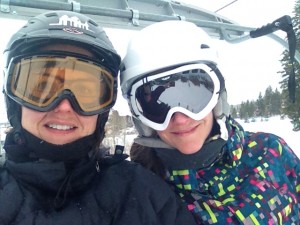My husband is a techie. He clicks around with confidence and persists until he finds the solution. He makes problem solving on the computer look easy-shmeasy.
After 14 years in the first grade classroom, I certainly understand how painful (literally) it is for Franklin to watch me fumble around the menus, but how am I to learn if I am not given an opportunity to engage and thoughtfully attempt in a trial and error process? I need Franklin to sit beside me, leading me with questions that help me think more fully about the task at hand, because on-point scaffolding Really Does Matter.
In 1999 I trained in a one-on-one tutoring program called Reading Recovery®. A tenet of Reading Recovery® is very specific and powerful use of questioning and prompting to scaffold (support and guide) a child’s attempts while reading. I took the essence of several of the scaffolding techniques from Reading Recovery®and used them with great success in teaching reading in a classroom setting. You can too!
Let me explain.
Introducing a new book (before the first read) is an important scaffold. The introduction allows you to set the stage for reading, giving your child a reason to read and some background or a real-world application for the content. Below you will “see” that in the introduction to Me and Thee Studios’ “The Fish and The Temple Tax.”
In addition to introducing the content, a “picture walk” is another fantastic scaffold. It might sound something like this: Let’s find out how Jesus took care of the temple tax. The introduction says it’s amazing. Why don’t you look through the pictures in the story and tell me about what happens. Where does the story begin? Who do you think that might be? What happens? What happens next?
While you’re shoulder to shoulder with your child for the first read, ask questions rather than simply telling your child every unknown word. Powerful questions help guide your child in the development of reading strategies (thinking about reading and problem solving at the point of difficulty). Your questions (scaffolds) should be prompts to each of 3 information sources your child needs to use interchangeably to make sense of text.
Scaffolds for visual work might sound something like this –
- Try that.
- Get your mouth ready for the first sound.
- You know what the sh sounds like because you know the word she. Write the word she. Now try the new word.
- You know that “chunk” from the word see, what does the ee sound like in see?
- You know the sounds for the oo. Try one of the sounds. Try a different sound.
Scaffolds for meaning work might sound something like this –
- What would make sense?
- What might happen next?
- Who could that be in the story?
- You’re right, that’s a fish, but the word names the object in the fish’s mouth, what could it be?
- You said … did that make sense?
- Reread this sentence and look at the picture, what else could you call the … ?
Scaffolds for syntax/structure work might sound something like this –
- You said … is that how you would hear me say that?
- How could you say that so it sounds right?
Scaffolding as your child learns new skills can happen regardless of the “setting”. Help your child think about the how and why with powerful questions in the kitchen, the garage, and the backyard in addition to the classroom. Scaffolding takes a little more time and can be frustrating if a child is accustomed to getting the answer whenever he appeals for help. Ultimately, you’re teaching your child to fish when you give him the framework for thinking and problem solving, requiring that he begins to wrestle with his own learning.
How do you use scaffolds and on-point questioning to help your child incrementally accept more responsibility for his own learning? Please join the conversation by replying at the top of this post.
Before you leave the site, why not follow my blog (top, right of this post)? It’s quick and easy
For more from Marea, check out Me and Thee Studios’ faith based leveled readers for 1st-2nd graders at http://www.meandtheestudios.com/early-reader-collection.html.



